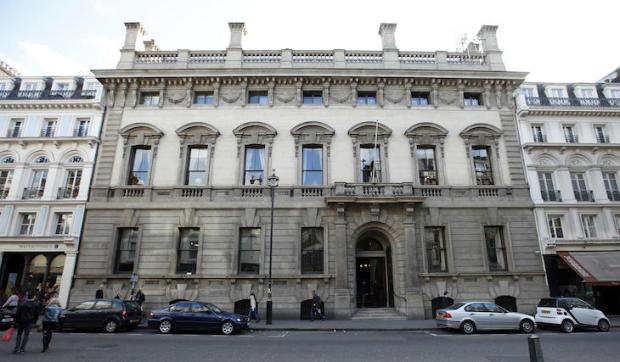Modern pragmatist political leaders are generally keen to reassure us that there is a unifying philosophy to be found running through their mish-mash of measures. In reality, perhaps they are keenest of all to reassure themselves of it.
Tony Blair had the ‘Third Way’ and David Cameron the ‘Big Society’. Boris Johnson has ‘levelling-up’.
But despite the largely hostile political class reviews being rolled out on Thursday in response to his speech on the latter, Johnson’s formulation is actually far more readily understandable than those of his predecessors.
Many of you will vaguely recall that the Third Way was something to do with synthesising right-of-centre economics and left-of-centre social policy (and try selling that on the doorsteps on a wet Wednesday in Withernsea). You may also be able to make a grab for Cameron’s bar of soap in the philosophical bath — Burke’s little platoons, social action but not by the state etc.
But neither achieved cut through in the world of retail politics. Hence when Cameron needed something to discourage Gordon Brown from calling an early election which he was not ready to fight he slammed ‘massive inheritance tax cut’ down on the counter instead.
Levelling-up is different. Many practitioners inside Westminster profess to find it baffling or a catch-all term that can mean anything or nothing. Indeed, in another notable display of whatever is the opposite of esprit de corps, Tory knee-taker Laura Farris told BBC Today: ‘It’s quite an ambiguous phrase. It means what anyone wants it to mean.’
That’s completely wrong. The meaning of this plain term is in fact eminently graspable and extremely useful to a Tory party that is reorientating away from the Newbury set. It simply means raising the condition of the least prosperous places and communities closer to that of the most prosperous.
In fact, it’s rather in sympathy with New Labour’s famous pledge to ‘create… a community in which power, wealth and opportunity are in the hands of the many, not the few’. But there is a crucial difference: the absence of any sense of animosity towards those who already possess such prizes.
Down the years, a big part of the explanation for the resilience of working-class Toryism was an instinctive understanding that socialism was on the side of ‘levelling down’ — that it would prefer an equality of misery to the spectacle of a minority succeeding. This could be applied to everything from the spread of high-rise council estates to imposing comprehensivisation on the school system, from levying punitive rates of domestic taxation that created a ‘brain drain’ to backing leftist regimes from Zimbabwe to Venezuela that destroyed pre-existing prosperity in those countries.
And this one little phrase — levelling-up — not only contains a reminder of Labour’s deficiencies but also an antidote to a key Tory weakness: the party’s historic reputation for not being overly-bothered about people that have not done so well out of a sink or swim economic system. Perhaps that’s why it fared so well in capturing much of Labour’s red wall in 2019.
In his straightforward and well-argued speech on Thursday, which was presumably written for him by his policy chief Neil O’Brien, Johnson amplified these themes. ‘We don’t want to decapitate the tall poppies. We don’t think you can make the poor parts of the country richer by making the rich parts poorer,’ he declared.
But he also set out the gaps — between and within regions — that he aims to close: in educational attainment; life expectancy; employment levels. And he did not dodge the crunchy policy choices this will entail either. While it won’t mean seeking to undermine successful places, it clearly is going to mean skewing public investment further towards left-behind towns.
Johnson spoke out against governments adhering to a rule that ‘investment should always follow success’, arguing: ‘To borrow from the Bible… governments have created a sort of Matthew effect “to him that hath shall be given” so you end up investing in areas where house prices are already sky-high and where transport is already congested.’ That signals the end of the traditional Treasury rules for determining whether a proposed public investment is worthwhile or not.
He told the commentariat how it could judge if he succeeded or not too: ‘We will have made progress in levelling up when we have begun to raise living standards, spread opportunity, improved our public services and restored people’s sense of pride in their community.’ These are all measurable things. By all means, gather the data and examine the metrics a few years down the line. But to pretend that assessing the progress of this agenda is as difficult as deciding whether ‘Society’ got ‘Big’ or whether the ‘Third Way’ ever got out of second gear is ridiculous.
The speech was less satisfactory on two fronts. First, there was little in the way of specific new levelling-up policies or investment projects being announced. Secondly, there was one particular sentence that was no doubt written to be a clarion call but risked sounding like a warning bell: ‘government is there to provide a strategic lead but that requires consistency from government, not chopping and changing.’
So a Thatcher mentality — There Is No Alternative — is needed then, rather than the wonky shopping trolley that we hear so much about when insiders describe Johnson’s model of leadership. But so long as the PM stays focused on it, his mission has every chance of retaining popular appeal.
While a largely hostile London commentariat may choose to brand it incomprehensible, I suggest that key groups of voters will understand it perfectly well.
Got something to add? Join the discussion and comment below.
Get 10 issues for just $10
Subscribe to The Spectator Australia today for the next 10 magazine issues, plus full online access, for just $10.



















Comments
Don't miss out
Join the conversation with other Spectator Australia readers. Subscribe to leave a comment.
SUBSCRIBEAlready a subscriber? Log in